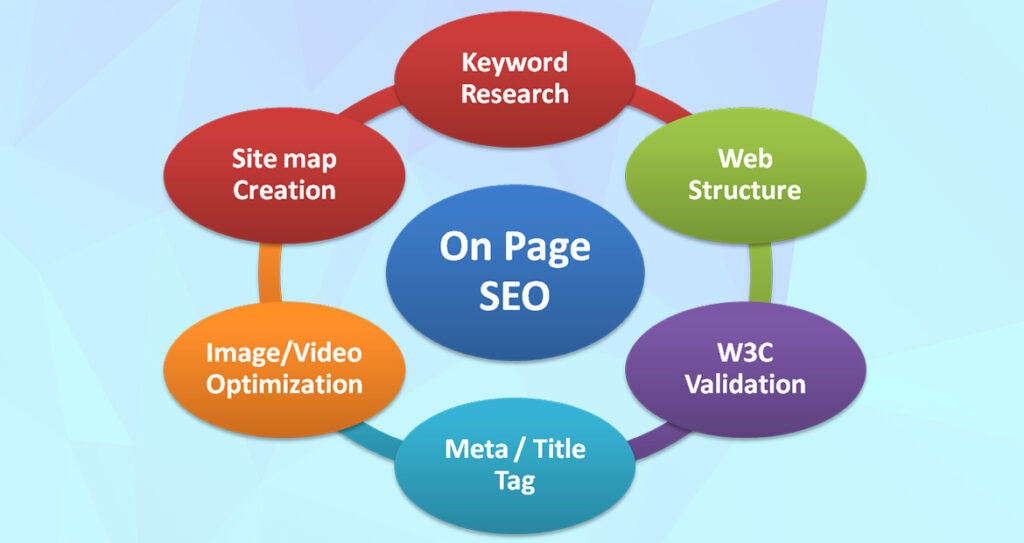What is on-page Search Engine Optimization?

What is on-page Search Engine Optimization
The question of “what is on-page and off-page SEO” is one that has been asked and answered for many years, yet it is still frequently asked. What is on-page search engine optimization? On-page or behind the scenes SEO is any number of techniques used to enhance the visibility of a site on the internet. On-page search engine optimization usually involves various types of communication with your Search Engine Optimization consultant or company. Off-page or visible SEO refers to any efforts outside of the normal on-page techniques used to promote a website.
Some common examples of on-page techniques include using keywords in the titles of articles; placing keyword or key phrase links throughout the body of the text; and using meta tags, XML sitemaps and alternate image text keywords. On the other hand, off-page techniques may include creating inbound links from other sites, social bookmarking, link baiting, link directory submission, and back linking. In fact, there are probably more off-page methods than on-page ones. All of these techniques will help to increase a website’s popularity and page ranking.
It is difficult to pinpoint exactly what is behind each of the methods used to promote a web site. However, the techniques that are behind most of them are pretty obvious. Just about every search engine uses either crawlers robots, indexers, or both to pull content from the internet and index it so that all web visitors have access to whatever information is found.
For example, the major search engines such as Google crawl the internet and collect web page information from article directories, blogs, press releases, websites, and so on. They also take the dates when those pages were created and publish these in their results. When an article or press release is published, links to the original site are added and the search engine continues its search for relevant links. Eventually, the search engine will determine what is on-page and what is not and display appropriate results based on the criteria it has set for the particular page.
On the other hand, back links can be created by article marketing, blogs, press releases, and back linking. The actual keywords or keyword phrases used for creating back links are not specified by the search engine. However, it is possible to use specific keywords to create links. When the keywords used are related to each other, they will be more likely to produce effective back links. However, the keywords must be specific. This is why it is important to use the right keywords or keyword phrases to maximize search engine results.
Another way that the search engine rankings are determined is by how many people search for a given topic. A webpage is ranked based on the number of times a page is searched compared to the total number of times that topic is mentioned on the Internet. For example, if the topic of discussion is what is on-page and someone searches for this topic five times in a day, the page would be ranked high. However, if a similar topic was not mentioned on the same page five times, the page would rank lower.
On-page optimization has become quite important with the increase of Internet usage. With the Internet becoming so popular, there are many more web pages online than there were even ten years ago. As a result, search engines have to work even harder to find relevant links for a given topic. Because of this, search engine results tend to take longer to arrive.
The importance of on-page optimization lies with showing users exactly what the page is about. Search engines are able to detect this through several different factors. For instance, a landing page may include a picture or other image that is relevant to the topic. Using the appropriate meta tags as well as keywords will help make users aware of the on-page aspects of the site.







